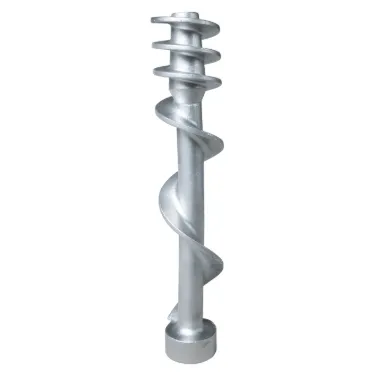Mobile:+86-311-808-126-83
E-mail:info@ydcastings.com
Innovation in Metal Castings Drives Modern Industrial Advancements
In the ever-evolving world of industrial manufacturing, the demand for strong, precise, and cost-effective metal components is growing rapidly. Among the most vital processes that fulfill this need is colata di metallo—a technique that has stood the test of time while continuously adapting to modern technological demands. From heavy-duty machinery to delicate medical instruments, fusioni di metalli are the unseen backbone behind countless products in our daily lives. With advancements in alloys, design software, and precision equipment, cast metal components are now more efficient and reliable than ever. This article explores five core casting technologies—including aluminium metal casting, microfusione di acciaio inossidabile, E aluminum alloy die casting—that shape the future of industry, both in form and function.

Why Metal Castings Remain the Foundation of Industrial Manufacturing
Getti di metallo are essential for converting molten metal into solid shapes tailored to exact specifications. This process allows for the creation of parts with intricate geometries and high structural integrity—making them vital for automotive, aerospace, construction, and energy industries. The strength of a casting lies not only in its material composition but also in the precision and repeatability the method offers.
Manufacturers benefit from reduced material waste, efficient large-scale production, and design freedom when choosing fusioni di metalli. These benefits lead to improved component performance, longer service life, and reduced total manufacturing costs. Whether in high-volume production lines or one-off custom applications, metal casting continues to offer unmatched scalability and performance.
The Growing Role of Aluminium Metal Casting in Lightweight Design
Aluminium metal casting has become a cornerstone for industries focused on weight reduction without compromising strength. Aluminum is not only lightweight but also naturally corrosion-resistant and thermally conductive. These characteristics make it ideal for applications in transportation, consumer electronics, and renewable energy infrastructure.
Using techniques such as sand casting, permanent mold casting, and pressure casting, aluminium metal casting enables the creation of complex parts like engine components, heat sinks, and structural panels. The process is fast, cost-effective, and easily adaptable for both small and large-scale production. In addition, aluminum is highly recyclable, which aligns with global efforts toward sustainable manufacturing and carbon footprint reduction.
Precision Engineering with Stainless Investment Casting
Stainless investment casting, also known as the lost-wax process, provides extreme precision for components that require tight dimensional tolerances and intricate detail. In this process, a wax pattern is coated with refractory ceramic material to create a mold, into which molten stainless steel is poured. Once cooled, the ceramic shell is broken away to reveal the final product.
This technique is commonly used in industries such as aerospace, medical devices, food processing, and marine applications. The corrosion resistance and strength of stainless steel, combined with the accuracy of investment casting, make this method indispensable. Stainless investment casting minimizes the need for secondary machining and delivers a smooth surface finish, ultimately reducing production time and cost.
High-Volume Production Efficiency with Aluminum Alloy Die Casting
Aluminum alloy die casting is a fast, reliable, and highly precise method used for creating metal parts with consistent dimensions and fine detail. In this process, molten aluminum alloy is injected into a steel mold at high pressure. The result is a dense, complex part that requires little or no finishing work.
This technique is favored for mass production in the automotive, telecommunications, and appliance industries, where dimensional uniformity and high strength are essential. Aluminum alloy die casting also supports the integration of multiple components into a single casting, simplifying assembly and improving structural integrity. Enhanced by modern die design and automated machinery, the process achieves rapid cycle times and exceptional quality control.
Corrosion-Resistant Performance of Stainless Casting
Stainless casting encompasses various methods of casting stainless steel, including investment, sand, and centrifugal casting. What sets stainless steel apart is its ability to withstand harsh conditions—whether it be exposure to salt water, chemicals, or extreme temperatures. This makes stainless casting a top choice for demanding environments such as marine, chemical processing, and medical industries.
Beyond resistance, stainless steel offers aesthetic appeal and hygienic qualities, which are critical for equipment used in food production and pharmaceuticals. The strength-to-weight ratio and ease of maintenance further elevate the value of stainless casting, ensuring both functional and economic benefits over the component’s lifespan.
Metal Castings FAQs
What makes fusioni di metalli essential for industrial applications?
Getti di metallo allow for the creation of strong, complex parts with high design flexibility and cost efficiency, making them suitable for both mass production and specialized manufacturing.
How does aluminium metal casting benefit lightweight product design?
Aluminium metal casting provides a combination of strength, lightweight performance, and corrosion resistance, ideal for automotive, electronics, and aerospace parts.
In what scenarios is microfusione di acciaio inossidabile the best option?
Stainless investment casting is perfect for producing intricate, high-precision components that require excellent surface finish and durability in challenging environments.
What are the advantages of aluminum alloy die casting for manufacturers?
Aluminum alloy die casting delivers fast, repeatable production of high-quality components with minimal post-processing, helping manufacturers scale quickly while maintaining precision.
Where is stainless casting most commonly used?
Stainless casting is widely used in marine, medical, food-grade, and chemical applications due to its corrosion resistance, durability, and clean surface properties.
-
Materials Used in Manufacturing Cap End Pipe FittingsNotiziaNov.24,2025
-
Material Properties of CF8M CastingNotiziaNov.24,2025
-
How to Inspect Pump Cap Ends for DamageNotiziaNov.21,2025
-
Backward Curved Impeller – Efficient Airflow Solutions for Industry | YD CastingsNotiziaNov.21,2025
-
Automobile Water Pump - Efficient, Quiet, Durable & ElectricNotiziaNov.21,2025
-
Impeller for Pumps – High-Efficiency, Durable, OEM-ReadyNotiziaNov.21,2025











